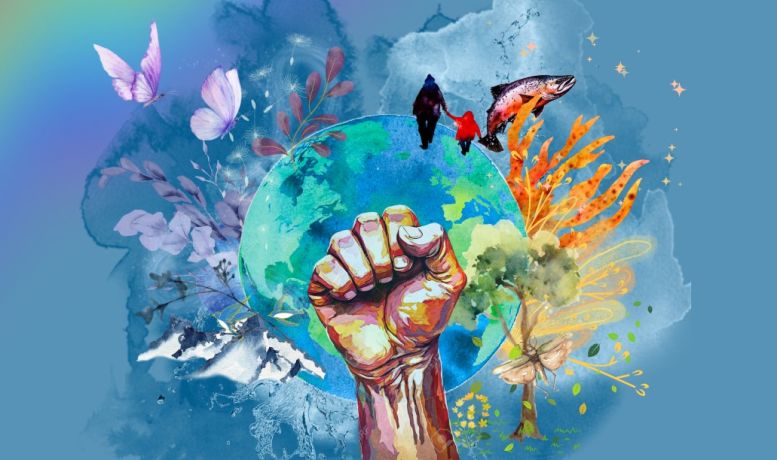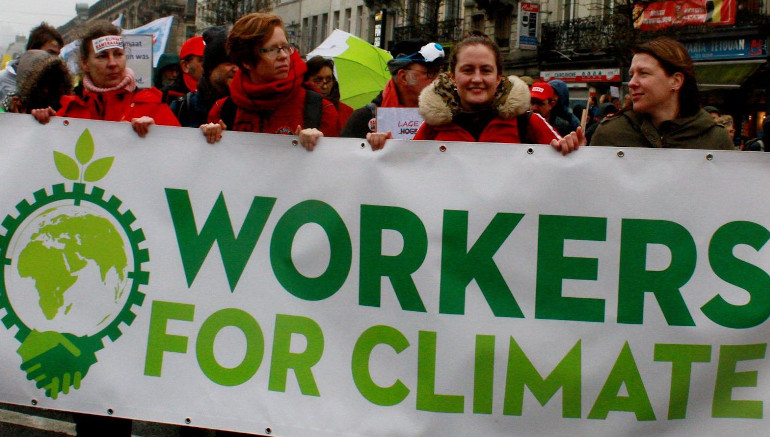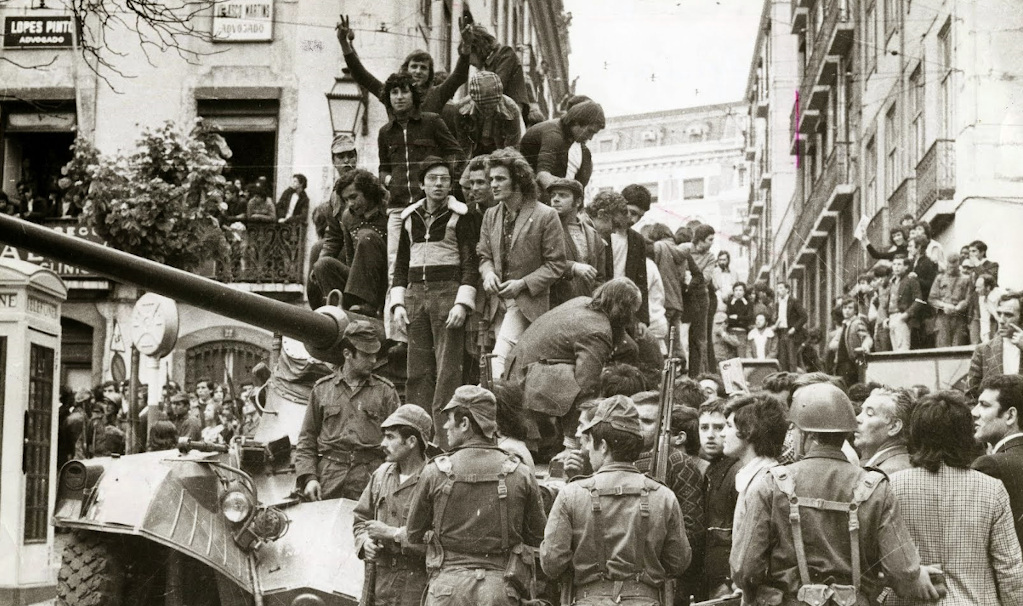Many of us struggle to make sense of the world. We are on the precipice of a climate cataclysm, which will have catastrophic consequences for thousands of species, including our own. Humanity faces water shortages, hunger, desertification, agricultural collapse and other capitalism-caused climate calamities. Headlines blare at us about imperialism’s never-ending military build-up and wars. There is danger of escalating inter-imperialist conflicts in the Middle East, Ukraine and Asia. Refugees fleeing climate catastrophe and war linger in camps for years with many never finding safe refugee and new homes. Racism, sexism and ethnic tensions contribute to the lack of safety that many people of colour and women face in the streets or even in their homes. And the rich just keep on getting richer while many struggle to make ends meet as the cost of living creeps ever higher. And if you are lucky enough to have stable, affordable housing, you are among the few who don’t worry about your next rent increase.
Given this picture, it is clear to an increasing number of us that capitalism has failed to deliver on its promise of economic prosperity. For a time, during the post second world-war boom, things looked much better. The power of unions and threat of a different economic system (socialism and the Soviet Union’s planned economy) forced the ruling class to increase benefits, provide stable housing, health care and other services for the majority working class. However, this post-war prosperity started to fade in the 1970s and 1980s and it has dwindled to the extent that current generations are less well off than their parents. They may never own a home and will struggle with student debts, while trying to find the well-paying jobs promised by their post-secondary education.
A socialist answer to this capitalist disaster is needed more than ever. Not only does socialism provide hope that a better world is possible, but it also offers an alternative to the unending crises and ongoing catastrophe of capitalism. It has positive solutions to the multiple crises of capitalism and points a way forward on many of the issues that capitalism has created.
Capitalism offers a grim future
What has capitalism delivered to the vast majority of humanity — the working class — up to now? What are the prospects for a future under capitalism? Its promise of economic prosperity (rising tides lift all boats) claims to have lifted the majority of the world’s population out of poverty. A 2022 Science Direct article debunks the narrative, promoted by the likes of Bill Gates and right-wing institutions, that the majority of the world’s population lived in poverty before the rise of capitalism in the 16th century. On the contrary, the rise of capitalism caused a dramatic deterioration of human welfare. In the regions that were studied, “incorporation into the capitalist world-system was associated with a decline in wages to below subsistence, a deterioration in human stature, and an upturn in premature mortality. In parts of South Asia, sub-Saharan Africa, and Latin America, key welfare metrics have still not recovered.” Where progress has occurred, it has been through the pressure of political and social movements on governments to redistribute income and provide services. Unions fought for decent wages, working conditions and benefits. It is the balance of forces in society (working class versus capitalist class) that makes the crucial difference. In The Communist Manifesto in 1848, Marx and Engels urged workers to overthrow all existing social conditions, saying that workers have “nothing to lose but their chains. They have a world to win.”
The reality is that capitalism’s modus operandi is to create division among workers. In the US post-Civil War Reconstruction period, capitalism set out to deliberately create racial divisions among Black and white workers who previously worked together, by paying white workers more than Black workers. Women workers were needed during the second world war to keep the factories running but as soon as the war was over, they were ditched and relegated to be “homemakers.” Women today are still fighting for pay equity and against workplace sexual harassment.
The colonization of Africa, Asia and North America robbed natural resources from poorer countries and peoples. Europeans settled in new continents, dispossessing Indigenous peoples from their homes and territories. Across much of Europe, peasants were pushed off their lands by catastrophes such as the Irish famine and the highland clearances in Scotland. Other people migrated, hoping to find a better life. Today this exploitation continues as capitalist extractive industries mine minerals and fossil fuels, frequently displacing Indigenous populations from their homes and polluting their lands and waters.
While the industrial revolution caused smog and pollution from mining and burning coal, capitalism has continued to plunder lands and waters, polluting the air and water, and causing numerous other ecological disasters (e.g., deforestation, soil degradation, habitat destruction, and unprecedented glacier melt, among many other fiascos). The natural world upon which humanity and all life depends is on shaky ground.
Working class has power to change society
Marx and Engels declared in The Communist Manifesto, “the [written] history of all hitherto existing society is the history of class struggles.” It is imperative that we prepare for the overthrow of this system of decay and destruction to bring about a world where both humans and the natural environment flourish. This requires mobilization and struggle. But it also requires a vision of a hugely different kind of world than we have now.
Given the precariousness of the world created by capitalism, the enormity of the task of building a new world from the ashes of the old can seem daunting. Over a hundred years ago, the small but growing working class in Russia, guided by a relatively tiny group of revolutionaries, was able to do just that. Their experience suggests a path forward today. A clear vision of a socialist society, combined with a determination to defeat the decaying and corrupt Tsarist regime, were two of the essential ingredients. Of course, the Russian Revolution would not have succeeded without a strong leadership and clarity on the task.
The working class, in fact, does have the power to change society. Their labour is the source of all profits. The working class is much bigger than it was in Tsarist Russia — most people today rely on their own labour to provide their livelihood. This includes people working in a variety of private- and public-sector positions, including those doing highly skilled work, those providing essential health, education and social services, and people engaged in productive work to create and build roads, transportation systems, housing, furniture, and those who sew, bake, cook, etc. It is only the tiny minority of wealthy people, who profit from the labour of others, that rely on profits to sustain their rich lifestyles.
Socialism or barbarism?
A democratic socialist society would get rid of class and eliminate the divisions it creates such as gender oppression, racism, ableism and other isms. It would celebrate and acknowledge what makes each of us unique: our ethnicity, race, colour, gender and life experience. It would respect and enrich the diversity of languages and cultures. It would use skills and talents to benefit the majority. It would share the resources of the planet with all, not just for the profit of a few. It would engage the working class in planning for production and service-provision, minimize waste and provide essential living standards for all. Work would be part of an enriching life that sustains both body and spirit and includes ample time for leisure, creating art and community-building. Agriculture would be aimed at revitalizing soil, water, and ecological systems so that all are fed well and harm to plants and animals are minimized. There would be no need for private property — land would be commonly owned and used, stewarded for the enhancement of current and future generations.
The challenge we face is to build this new society. In 1929, Antonio Gramsci said “The old world is dying and the new world struggles to be born; now is the time of monsters.” Less than a hundred years later, this is truer than ever. If we want to see a future for our children and future generations that is not dominated by war, imperialism, and climate catastrophe, we must do away with capitalism and replace it with a new kind of society. Or, as Rosa Luxemburg warned over a hundred years ago, society “stands at the crossroads, either transition to socialism or regression into barbarism.” We fight for socialism.




